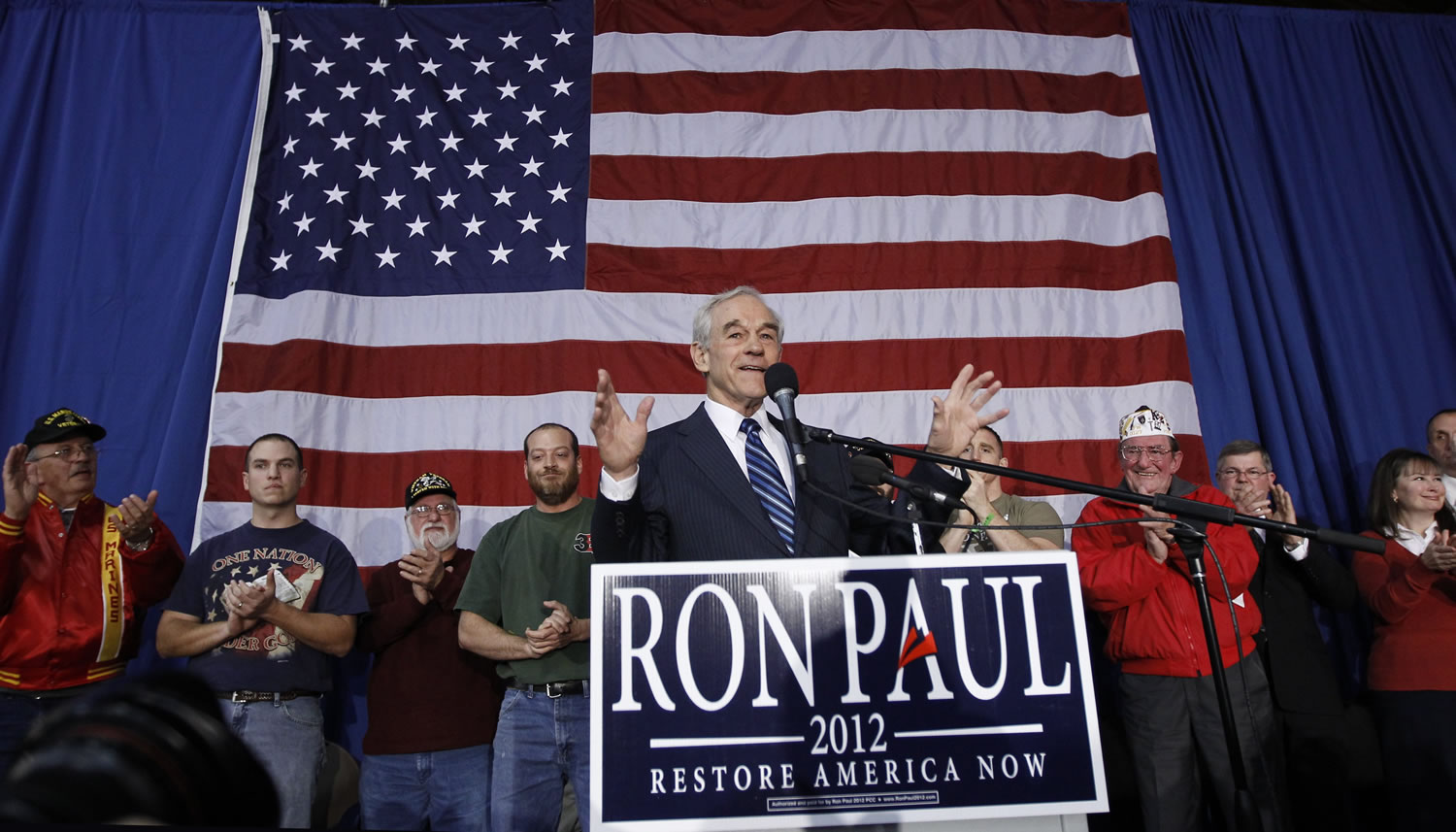Every four years around this time, the 99 percent of Americans who don’t live in Iowa begin to ask themselves, “Why on earth does the presidential primary calendar begin in Iowa?”
Excellent question, but this one is more timely: “Why on earth should we take the Iowa caucuses seriously if it turns out that the Republican winner on Jan. 3 is none other than Ron Paul?”
Yes, people, the cranky fringe candidate who wants to erase the safety net (say goodbye to Social Security and Medicare) and end all U.S. aid to Israel is indeed the Iowa front-runner in three new polls. Go figure. Apparently last week’s Newt Gingrich boomlet may turn out to be the worst marketing bust since New Coke. Every time you think that the fluid Republican race can’t get any weirder, it does.
Most GOP rank-and-filers are apoplectic about Paul’s ascent — as well they should be. They can’t fathom why Iowa Republicans would even consider anointing a candidate who supports the legalization of heroin and has assailed the desegregating 1964 Civil Rights Act as a “massive violation of private property.” But it’s not so hard to understand. Aside from the fact that all the other candidates seem so unpalatable, there’s a more fundamental reason:
Iowa. Its caucus process is fertile turf for an insurgent like Paul.
Iowans don’t just vote and go home. They have to show up for their precinct caucus meeting at 6:30 p.m. and stick around for hours. They have to declare for a candidate in front of their peers; there is no secret ballot. This means only the most zealous and truly committed Iowans — roughly 15 percent of all registered GOP voters — tend to participate.
This demographic truth is a boon to Paul, whose small-government purity has inspired a growing fan base. And that fan base has been built with the help of a serious grass-roots ground game. Paul’s organizers have been assiduously seeding those Iowa roots for the past four years — a smart move, because you can’t identify the devotees and propel them to the caucus meetings without a great ground game. If past Republican participation is any guide, Paul can snatch first place on caucus night by garnering a mere 40,000 votes statewide. Nearly the number of seats in Citizens Bank Park.
Imagine that. A guy with a batty agenda and no prayer of ever winning the presidency could wind up on top. Prominent Iowans are terrified, because they know that outsiders would view a Paul victory as proof that Iowa has no business vetting candidates at the starting gate. As Iowa talk-radio host Sam Clovis reportedly remarked this week, “A Paul win would be devastating for the state and the caucus process.”
Filling a vacuum
Granted, Paul seems well poised to exploit the Iowa rules — just as Mike Huckabee did in 2008, when he won the caucuses with grass-roots support from evangelical voters (although he later dropped out); and just as Bob Dole did in 1988, when his Midwest pedigree and ground game propelled him to first place (although he later dropped out). To be fair to Iowa, however, Paul is filling a vacuum in the flawed Republican field. Who else in that motley crew has accrued an army of enthusiasts?
But those enthusiasts won’t like what I now feel compelled to say: Paul will peak in Iowa. Anybody who thinks the traditionally hawkish GOP will actually nominate someone who wants to get tougher with Israel and go easier on Iran, is surely spending too much time smoking or shooting the stuff that he wants to legalize.
Never mind that Paul views Social Security and Medicare as unconstitutional (I’d love to see how that would play in senior-rich swing states like Florida and Pennsylvania) and wants to wipe out federal disaster-relief aid (even Republican governors in Mississippi, Georgia, and Texas covet that aid). His biggest problem is that he seeks the nomination of a party that has long believed in a muscular American presence abroad. His second biggest problem is that his hostility toward Israel clashes with the party’s love of Israel. His third biggest problem is that he blames America for miscues abroad, whereas his party thinks America can do no wrong.
It gets way worse. During the 1980s and ’90s, various Ron Paul newsletters fomented bigotry (Martin Luther King Day is “our annual Hate Whitey Day”) and floated conspiracies (the 1993 World Trade Center attack may have been “a set-up by the Israeli Mossad”). GOP regulars won’t OK that extremism. On Tuesday, Paul said, “I didn’t write them, and it’s not my sentiment.” But he was an officer in the company that published the newsletters, which featured his name in the title.
By the way, we can thank Jimmy Carter for putting the Iowa caucuses on the map; he finished strong there in 1976, and pols have paid obeisance ever since. But maybe a Ron Paul victory would finally break the spell. Before his return to the fringe, he’d at least be performing a public service.
Dick Polman is a columnist for the Philadelphia Inquirer. Email: dpolman@phillynews.com.



